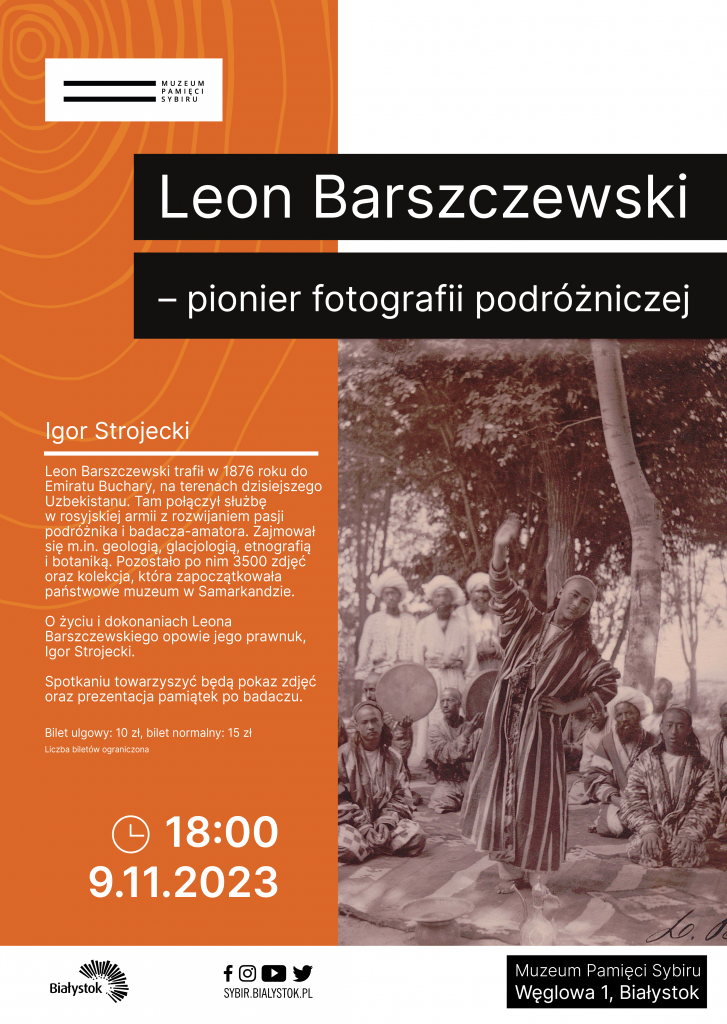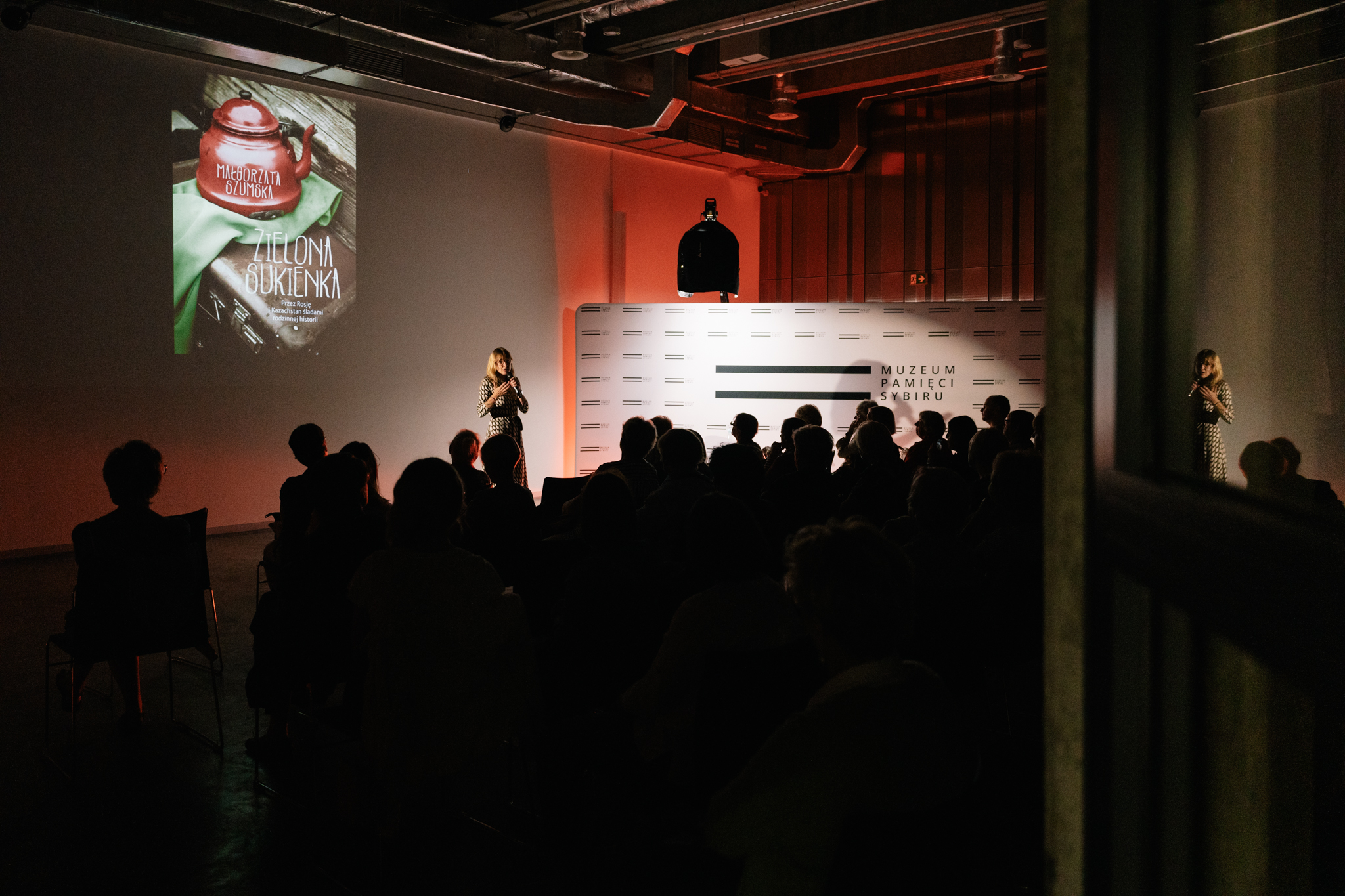Full of inexhaustible energy and humor, the traveler from Zloty Stok captivated the audience with her story, full of emotions and unexpected twists. She could not sit in the chair prepared for her. She sat down for a moment to take a photo — and was already standing with a microphone in her hand, as close as possible to the audience, with whom she immediately made contact. It’s not surprising, because she is an actress by profession!
The journey deep into Russia was not her first long-distance journey. During her dean’s leave at the Wroclaw Theater Academy she visited, among others, Vietnam and China. ‘During these trips, I realized that people are good’ — Małgorzata Szumska began her story.
The idea of traveling in the footsteps of my grandparents came from my close relationship with my grandmother and growing up surrounded by family stories. ‘I was the youngest of my cousins, no one wanted to play with me, I was always sent to grandma Yasa. And she told me bedtime stories about Siberian wolves. For example, when they ate a teacher so all that was left of her were felt boots. These were not the fairy tales that my peers knew!’ — the author of ‘The Green Dress’ joked.
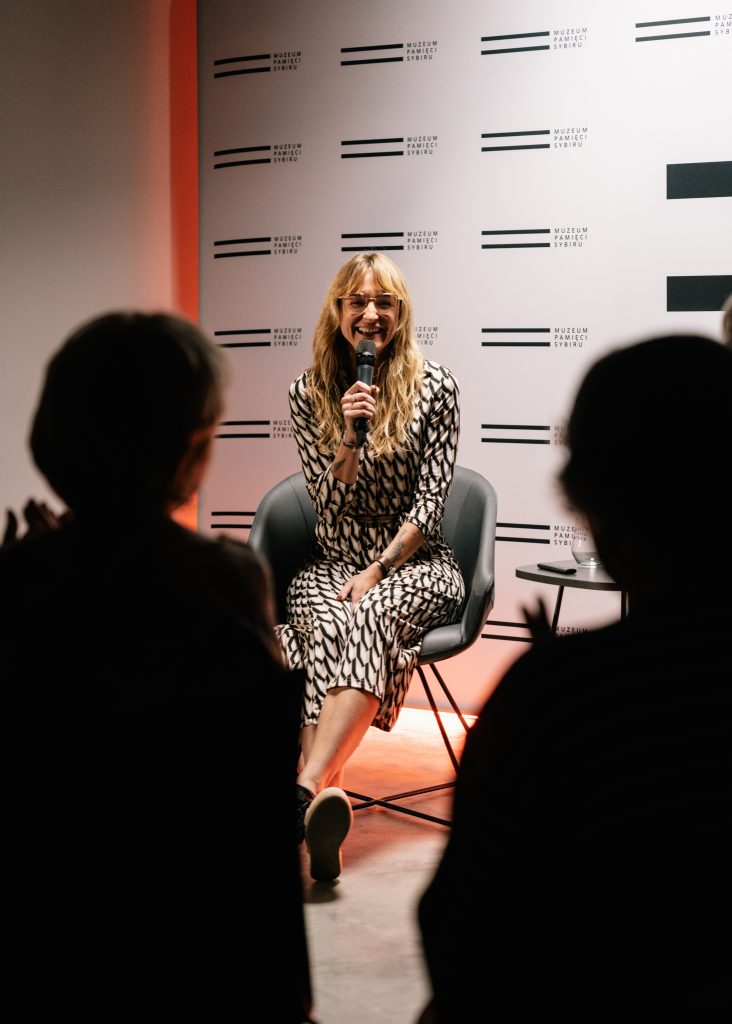
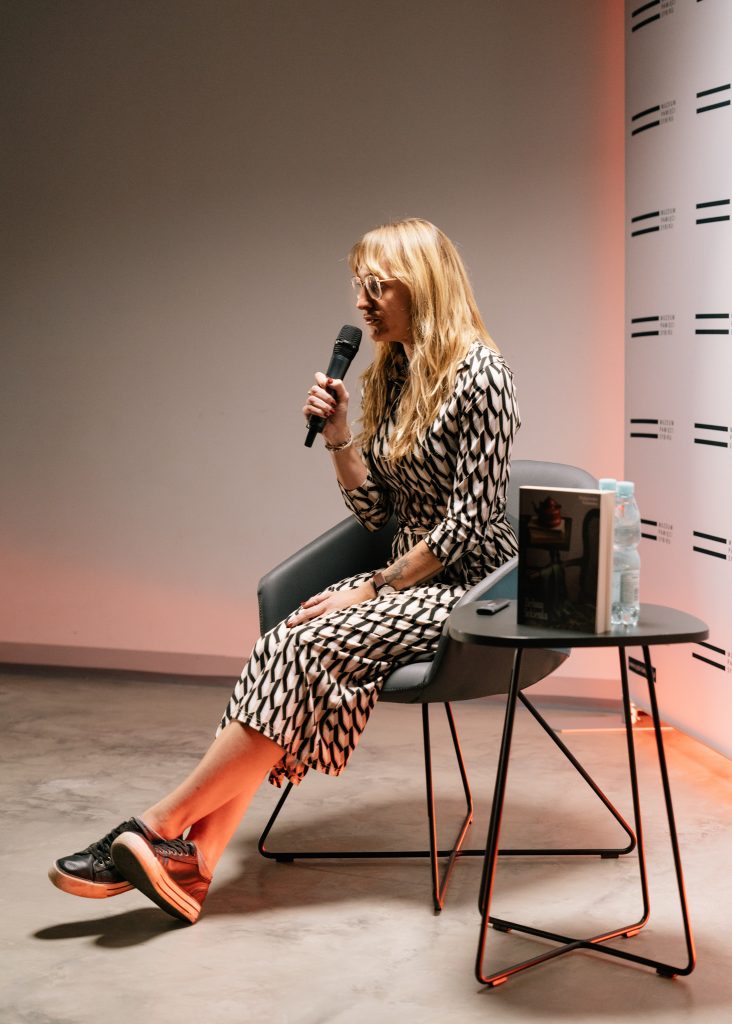
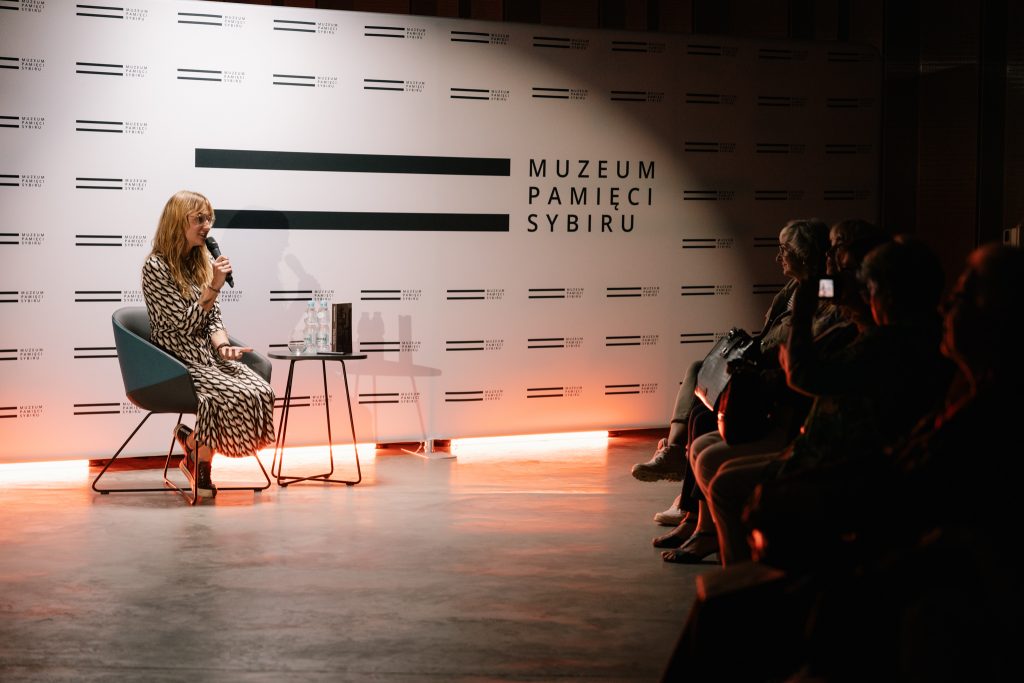
— ‘In turn, after drinking a glass of beer, my grandfather talked about his guerilla adventures, about the bombing of railway tracks and trains. So as a child I played throwing grenades and blowing up imaginary trains. And in general, the only thing I’m afraid of today, as an adult, is war’ — she admitted.
— My journey following in the footsteps of my grandparents was planned several decades earlier… by Stalin! — Małgorzata Szumska surprised the audience, and then told how Stanisław and Janina, her grandparents, started a family, and in the Stalinist times they ended up in Siberia.
Stanisław, Małgorzata’s grandfather, was fighting in the guerrilla, that was still active in the Vilnius Region after World War II. Five years younger Janka fell in love with a handsome partisan, but he was more interested in her cousin.
He was arrested and sent to Vorkuta for two years. However, he did not work at the mine, but was subjected to torture and interrogation. He didn’t betray anyone. After his release, he returned to the Vilnius Region. Janka was waiting for him there. They got married and had a son, Jan. Stanisław resumed contacts with the partisans.
— Janek was less than one year old when there was another knock on the door in the middle of the night. Grandfather said: this is a mistake, I will return in a few days. However, he did not return — Szumska said. — My grandmother found him in Lukiškės Prison in Vilnius. She was not present at the court, but she heard ‘25 years of hard labor’ from behind the door. When he was walking with other convicts, my grandmother (she was 18 years old at the time) shouted — ‘Staszek, what should I do now?’ He answered her: ‘I won’t come back, start a new life’. But she promised herself to wait for him until she received confirmed information about his death — the writer said.
Stanisław ended up in Karlage, a labor camp in Kazakhstan, where he worked in a mine. — He could send two letters a year. He guessed that Janina, as the wife of an enemy of the people, would also be taken somewhere. Therefore, he wrote not to her address, but to his sister Maria, who married a Lithuanian and lived in Vilnius — Szumska explained.
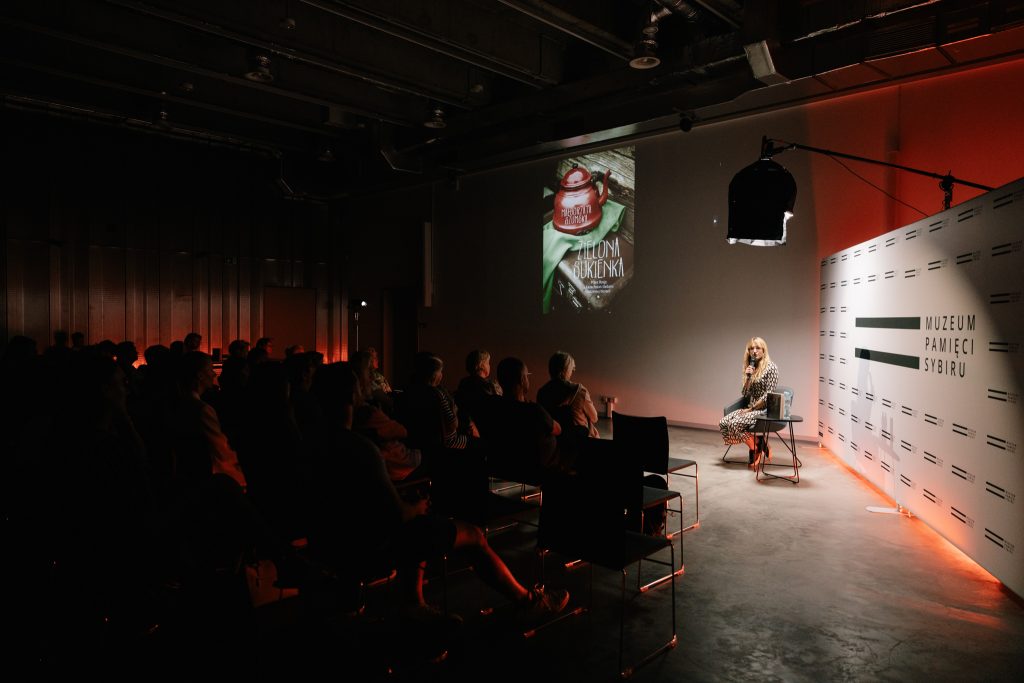
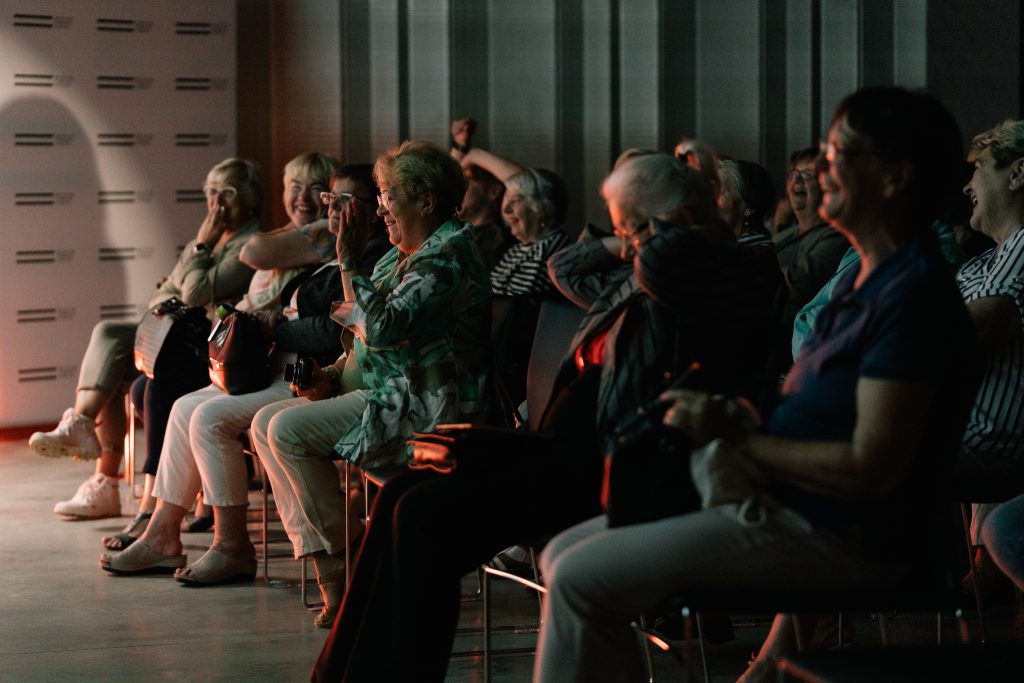
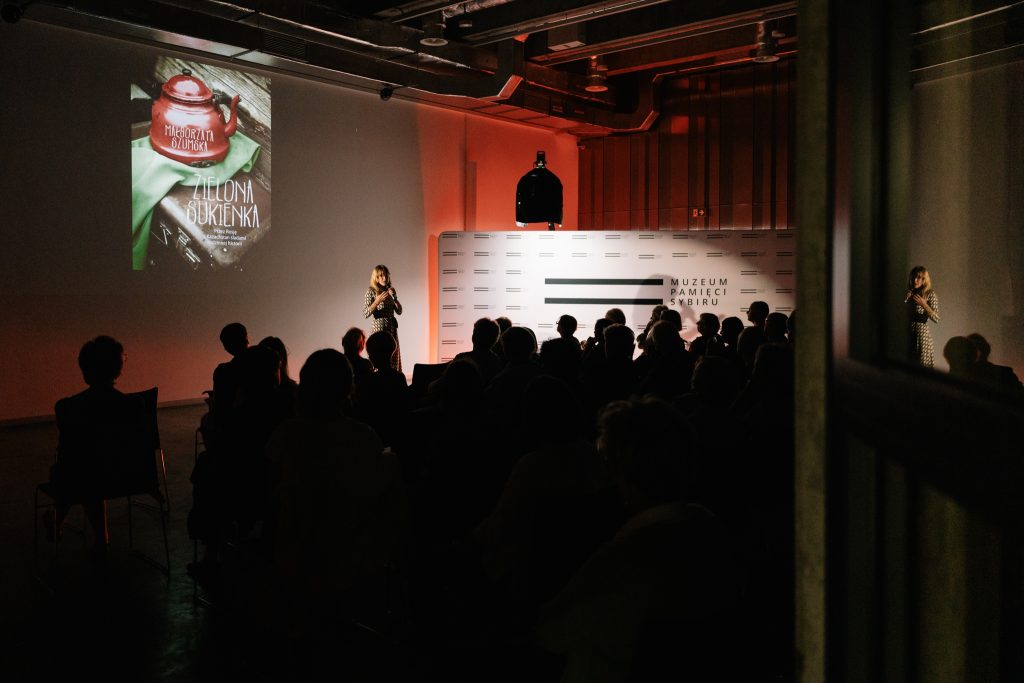
Janina also sent letters there and, as you can guess, she and her entire family were soon resettled. She ended up not far from the Siberian Kansk. Through the agency of the sister, it was possible to connect the spouses separated by their fate.
— Grandma was lucky; she was not sent to the Gulag, but resettled. Theoretically, she was a free person, she just had to report every month. She left her son under the custody of her family, visited him on weekends, and spent the week at work in Mokrusha, several tens of kilometers away.
There she worked in a hospital as a nurse. She rented a room from her work friend Szura. She was also separated from her husband (he fought in the Red Army) and had a young son. Grandmother said that ‘Szura was a swashbuckler’. Thanks to her, she survived morally; they were like sisters to each other — said Małgorzata Szumska.
When Stalin died in 1953, Janka received an ‘extra’ letter from her husband. He wrote that they were treated better and even visits were allowed. Janina went to Karaganda. — ‘My grandmother mostly remembers camels in Kazakhstan. It’s not surprising, she finished only four classes, she didn’t even see them in books’ — the granddaughter laughed.
Janina hears from the local services that she will see her husband if she points him out in the crowd of prisoners leaving the mine.
— ‘She was sure that she would easily recognize him. But when she saw this crowd of identically looking, hungry men, she burst into tears. She lost faith that she would find Staszek’ — the traveler said. — ‘But she recognized him by his eyes. — ‘Everything in Staszek was different, only the eyes were the same, my grandmother said many years later’ — added Małgorzata Szumska.
In the spring of 1954, Gulag prisoners began to be released. The Szumski family is together again and decides to return to their homeland. But this is no longer Poland, but Soviet Lithuania. They decide to apply for repatriation. They end up in Lower Silesia. Everyone there was from somewhere, so people supported one another — says the author of ‘The Green Dress.’ — My grandparents moved to Jelenia Góra, got an apartment and spent the rest of their lives there.
— ‘When I was thinking about following in their footsteps, before asking my parents if they would allow me, I went with this idea to my grandmother. ‘Go to Mokrusha, take a lot of photographs, and here is the list of my friends’ — Janina said busily. And she taught her granddaughter, who does not know Russian, three phrases: ‘I want to eat’, ‘I want to smoke’ and ‘Go to $%# @&*$.’ — ‘I didn’t realize it was so unkind — Małgorzata laughed. But an insult came in handy when in Kazakhstan I had to escape from an assertive and cruel taxi driver.
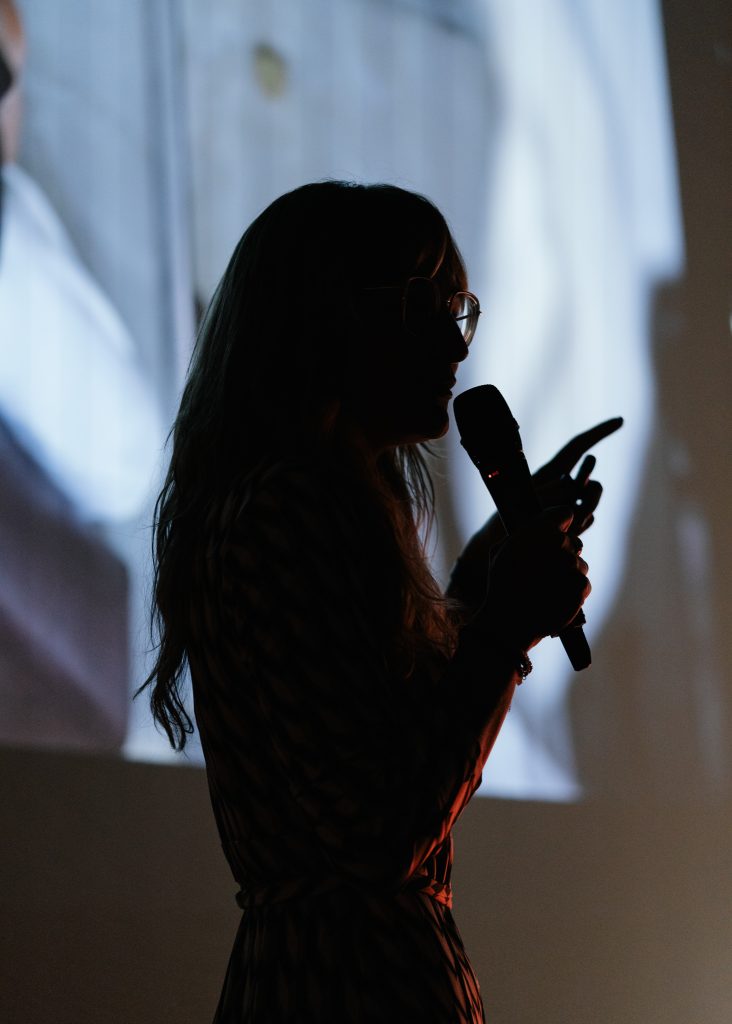
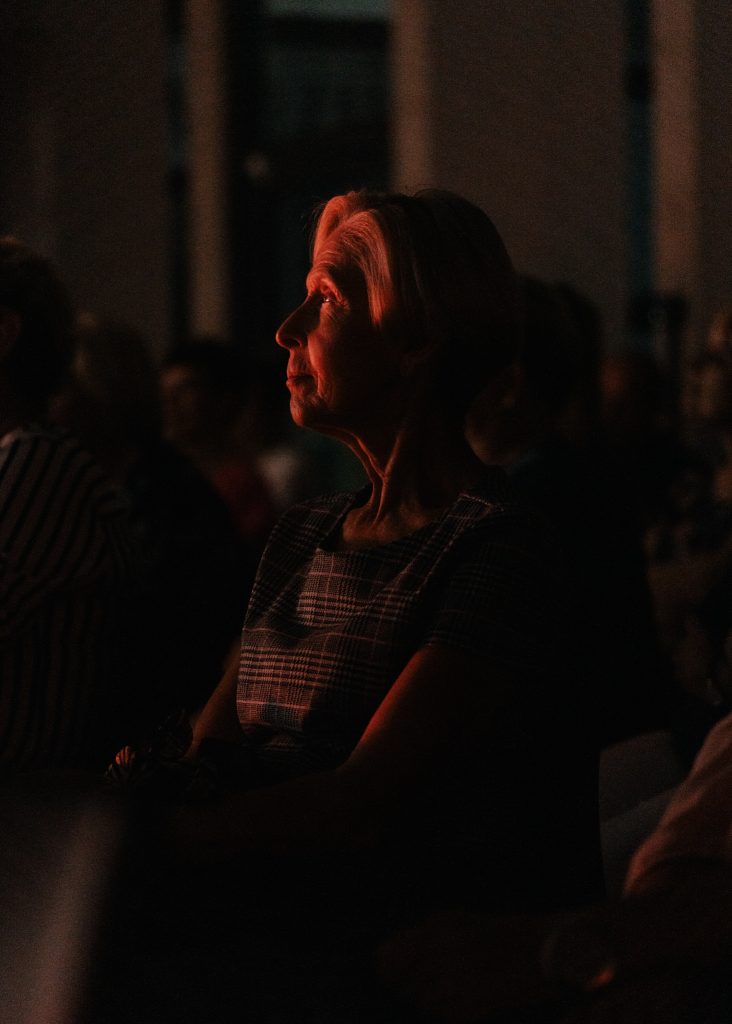
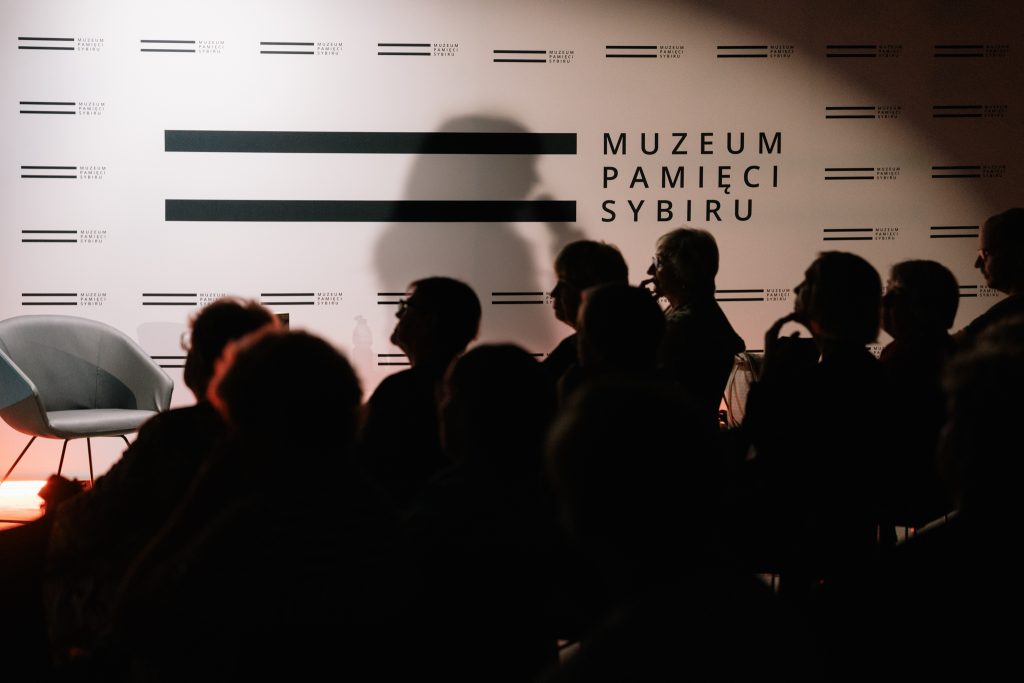
In the following story, Małgorzata Szumska told a touching story about how she found Szura and, many years later, restored contact — already by telephone — between the two friends. About the search for traces of my grandfather in the post-industrial landscape of Kazakhstan. About the Buryat shaman and luck in contacts with unknown people. You can get acquainted with them by reading our speaker’s literary debut, the book ‘Green Dress. Through Russia and Kazakhstan in the footsteps of family history’.
— ‘My grandfather died in 2013, grandmother in 2019. This lecture in Bialystok is one of the first after the death of my grandmother’ — the author admitted. — ‘I couldn’t speak for a long time because of my emotions’.

— ‘When my grandparents were still alive, I asked them for permission to tell their stories. When I was writing a book, my grandmother wanted to read all the chapters, so she checked them’ — the writer laughed. — ‘These are the stories we need to remember. I also do this for the youth. And to pay tribute to the people who fought for free Poland so that we can live in a democratic country today’ — concluded Małgorzata Szumska.
The next (and the last this year) meeting with travelers is on Thursday, November 9, at 6:00 p.m. Igor Stroetski will come to us. His grandfather was Leon Barszczewski, who in 1876 left for the Emirate of Bukhara (now Uzbekistan).
There he combined his service in the Russian army with his passion for travel and amateur research. He studied, among other things, geology, glaciology, ethnography and botany. He left behind 3,500 photographs and a collection that marked the beginning of the creation of the State Museum of History of Uzbekistan in Samarkand.
The meeting will be accompanied by a display of photographs and a presentation of the researcher’s memorabilia. Tickets for this event can already be purchased at the ticket office of the Sybir Memorial Museum and on our website.
Welcome!
